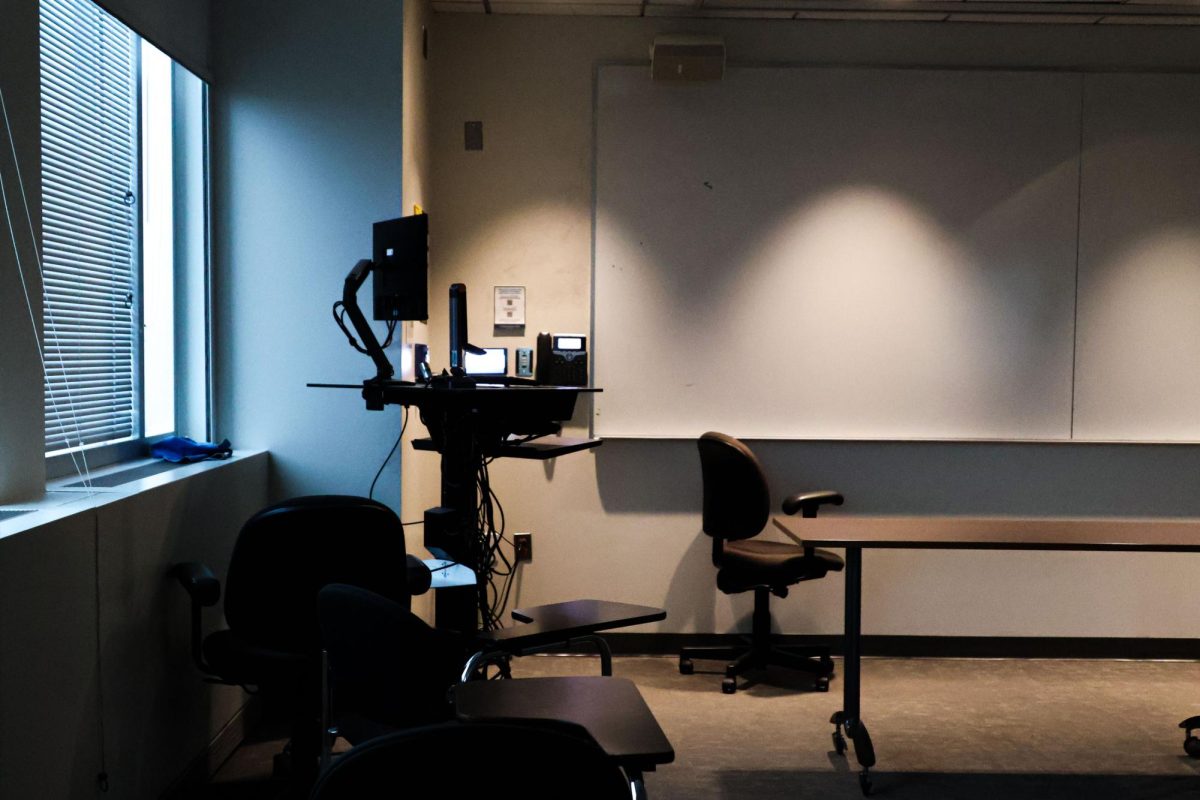In the heat wave of 2006, David Pirtle watched a man die 20 feet away from him in a homeless shelter. It was then that he knew he needed to find a home.
Pirtle, a balding man who suffers from schizophrenia, received a rent-subsidized apartment through a pilot program for Housing First, a city-funded initiative that gives apartments to the chronically homeless.
He has lived in an apartment for two years, but now his landlord is facing foreclosure and the tenants could be evicted, he said at a panel discussion on homelessness in the Marvin Center last week.
The tough economy has affected those on the verge of homelessness in many other ways. Last month, the D.C. City Council cut $8 million from the Housing First budget in response to a $130 million budget deficit, which challenges the city’s plan to give out 400 apartments in 2009.
The cuts will decrease the number of people who will receive housing next year, and will prevent the city from buying an apartment building to use entirely for formerly homeless people, according to a representative from the Department of Human Services.
For Steve Thomas, receiving an apartment has literally saved his life.
His drug and alcohol addictions eventually cost him his job, and he spent four years staying in people’s basements, crashing on their couches and sleeping in shelters. For a year, he lived on Pennsylvania Avenue, he told the small room of students and homeless advocates.
At one point, he wanted only the strength to commit suicide.
“I found myself about to break,” he said. “I found myself cursing God because he made me so soft.”
A doctor from Unity Health Care found Thomas on the street, helped him get into rehab and then into housing, which he saw as a gift from God. For the past five months, he has lived in an apartment in Northwest D.C.
Renting an apartment, he said in a later phone interview, “affords me the opportunity to be seen as a part of society rather than a black mark on society.” Thomas, a big guy who says “have a blessed day” at the end of his phone calls, now works as a speaker for the National Coalition for the Homeless and is a vendor for the Street Sense homeless newspaper.
Linda Kaufman, the chief operating officer for Pathways to Housing, an organization that gives apartments to the homeless, said everyone should be entitled to housing and that giving the homeless apartments “is just cheaper.” A homeless person who is vulnerable to illness can cost the city between $50,000 and $70,000 a year, racking up bills for ambulances, emergency room tests and days spent in the hospital, she said. It costs an average of $22,000 a year for Pathways to house a person and provide mental health services.
Pathways to Housing has put 225 people in apartments through the Housing First program. Most of the apartments are east of the Anacostia River, she said, though they place people all over the city. The residents pay 30 percent of their income toward housing expenses, an average of $190 per month.
People with mental and physical disabilities are prioritized on the list of those to receive apartments through Housing First.
Wesley, a man who has been homeless for 20 years in Foggy Bottom, was deemed “too intelligent” when he was surveyed about receiving an apartment. Sitting on the sidewalk on K Street, across from Washington Circle, he explained that though he has not been diagnosed with anything, he still needs help. He said he needs an apartment where he could “get grounded.” He knows at least 20 people who received apartments through Housing First and even though many of them are in drug-ridden neighborhoods, they are nice apartments, he said.
He said, “If you get grounded, if you get started in a place. That is what it is supposed to be for.”






